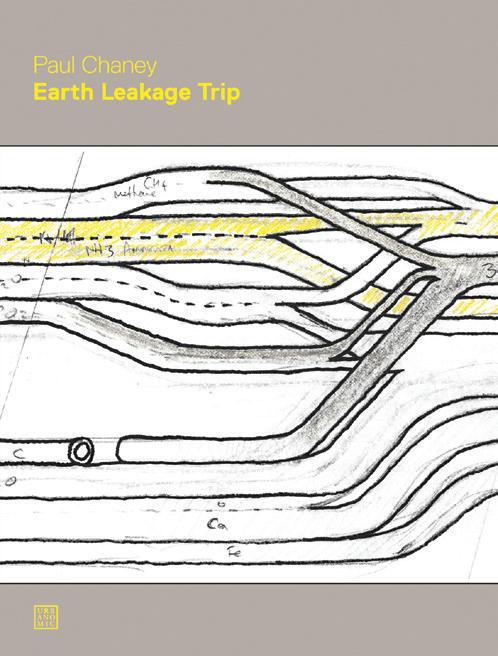
2 minute read
Urbanomic
Aeons without History/Thesis on the Metacartel
Vincent Garton and Edmund Berger
Advertisement
A historian and a political economist investigate the occult forces that control history.
If historians measure the passing of historical time by the explosive rhythm of progress and collapse, Vincent Garton’s Aeons Without History is a handbook to its conditions of stasis and directionless suspense—the forgotten intervals of hopelessness in which empires rot and prophecies fail. The wreckage surveyed sprawls from the dawn of civilization to the triumph of the automatic world, from Uruk to Beijing. Out of the gloom, distant yet uncomfortably familiar, we glimpse entire eras in which time itself became directionless, seemingly reduced to ruin. But the edifice of antiquarianism soon begins to crumble, and beneath the surface lies something more immediate: a meta-historical conspiracy for our times.
Edmund Berger’s Thesis on the Metacartel begins from a similar premise: something has happened to history. The accelerative thrust of modernity has been throttled, obsolesced by molten flows of monetary mass governed and regulated by an invisible axiomatic system whose contrivances unfurl in the dark corners of offshore financial havens and in the halls of the world’s central banks.
Within this occult architecture, technocratic planners outline schemes for the centuries to come, acting in concert with countless spooks and hired agents who thrive in the secret anarchy of the world system. From New York to Basel, from the tropical islands of the Caribbean to the webs of interlaced development zones, the ligaments of this entity are traced and a series of theses concerning the nature of its operations is proposed. Rising up from the smog of nonhistory is the spectre of the Metacartel.
Vincent Garton has written on a range of topics involving religion, technology, aesthetics, and in particular their conjunction in Chinese culture and politics. Edmund Berger is an independent writer and researcher living in Kentucky.
literature | philosophy May | 4 1/2 x 7, 160 pp.
US $18.95T/$24.95 CAN paper
978-1-915103-09-3 K-Pulp Switch Distributed for Urbanomic Press Paul Chaney
The travails, triumphs, and disappointments of eco-life, viewed through the prism of artistic research.
In 2004, distressed by the insanity of capitalist consumerism but dissatisfied with mere utopian rhetoric, self-taught artist Paul Chaney went “back to the land” for real. During the next eight years spent creating FIELDCLUB, a selfsufficient four-acre off-grid settlement in the UK, Chaney continually scrutinized the travails, triumphs, and disappointments of eco-life through the prism of artistic research. What emerges from this durational embedded practice is a vision characterized by a delicate equipoise between irony and sincerity and shot through with absurdism, in which speculative materialist philosophies are reworked in close contact with the humiliating tribulations of “living with nature.” In a shifting experimental triangulation of the human, the non-human, and the technological, themes such as geotrauma, dark ecology, and accelerationism are stress-tested, reconfigured, and supplemented with new concepts including the apocalyptic vernacular, carboniferous insurgency, and the solar contemporary.
Richly illustrated with sketches, diagrams, notes, and photographic documentation of his work, Earth Leakage Trip explores these concepts and collects Chaney’s raw self-reflections on his itinerary as an artist-outsider and as a human being—that extravagantly enlightened species that nonetheless remains physically enmeshed with others.
“Chaney combines art and research the way one wishes it were more often done: with genuine intellectual curiosity and derived from the pressing issues of our day.” —Jörg Scheller, Frieze
art March | 7 1/2 x 9 3/4, 256 pp. | 150 color illus.
US $29.95T/$39.95 CAN paper
978-1-913029-17-3 Art Editions Distributed for Urbanomic Press
mitpress.mit.edu | Spring 2023 129








